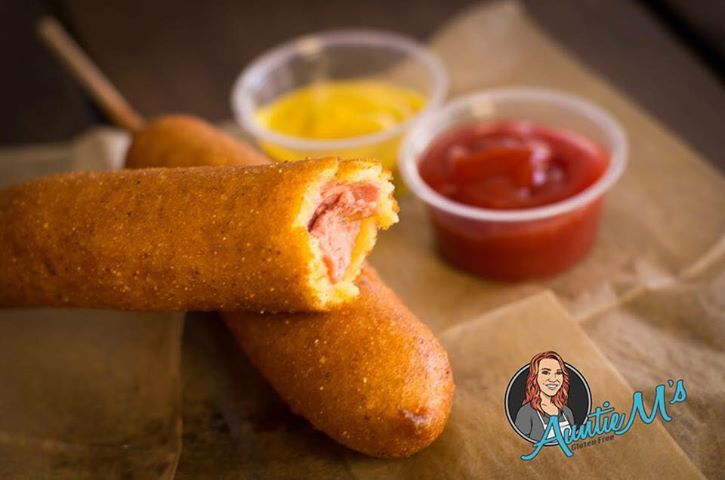Taking Back Lunch and Dashing Success for Project DASH
14 Min Read By MRM Staff
This TGIF edition of MRM’s Daily Bite has news from Tork, Lavu, DoorDash, Ziosk, The Gluten Intolerance Group, HOODZ International, APT 115, ParTech and Duck Donuts, Vermont Coffee Company and EAT Club.
Send news items to Barbara Castiglia at bcastiglia@modernrestaurantmanagement.com.

Take Back the Lunch Break
According to results of a study commissioned by Tork, an Essity brand, nearly 90 percent of employees consider the ability to take a lunch break critical when accepting a new job. However, once they are on the job, the average lunch break is less than 30 minutes for more than half of North American workers – barely enough time to purchase a meal, let alone enjoy it or be frequent restaurant visitors.
To help workers and restaurants, Tork introduced the third Friday of June as annual National Take Back the Lunch Break Day in an effort to encourage workers to take the pledge to step away from their desks and return energized.
Cindy Stilp, Business Development Director, Professional Hygiene, Essity, told Modern Restaurant Management (MRM) magazine that changes in lunchtime habits actually offer opportunities for restaurants to market themselves to bring guests in their doors as well as to provide delivery and catering services.
“Start small, social media channels provide good infrastructure and ways to be more responsive,” she said, adding that simple touches such as having custom napkins and custom display messages help instill brand awareness.
According to the study, hesitation to take a full lunch break seems to stem from a lack of communication between employers and employees. While 88 percent of North American bosses think their employees would say they are encouraged to take a regular lunch break, only 62 percent of workers actually feel encouraged – a 26 point gap, showing a real disconnect between management and employees. North American workers who take lunch breaks every day score higher on a wide range of employee engagement metrics, including job satisfaction as well as likelihood to continue working at the same company or recommend their employer to others. With a simple lunch break, employees can become more involved in, enthusiastic about and committed to their work.
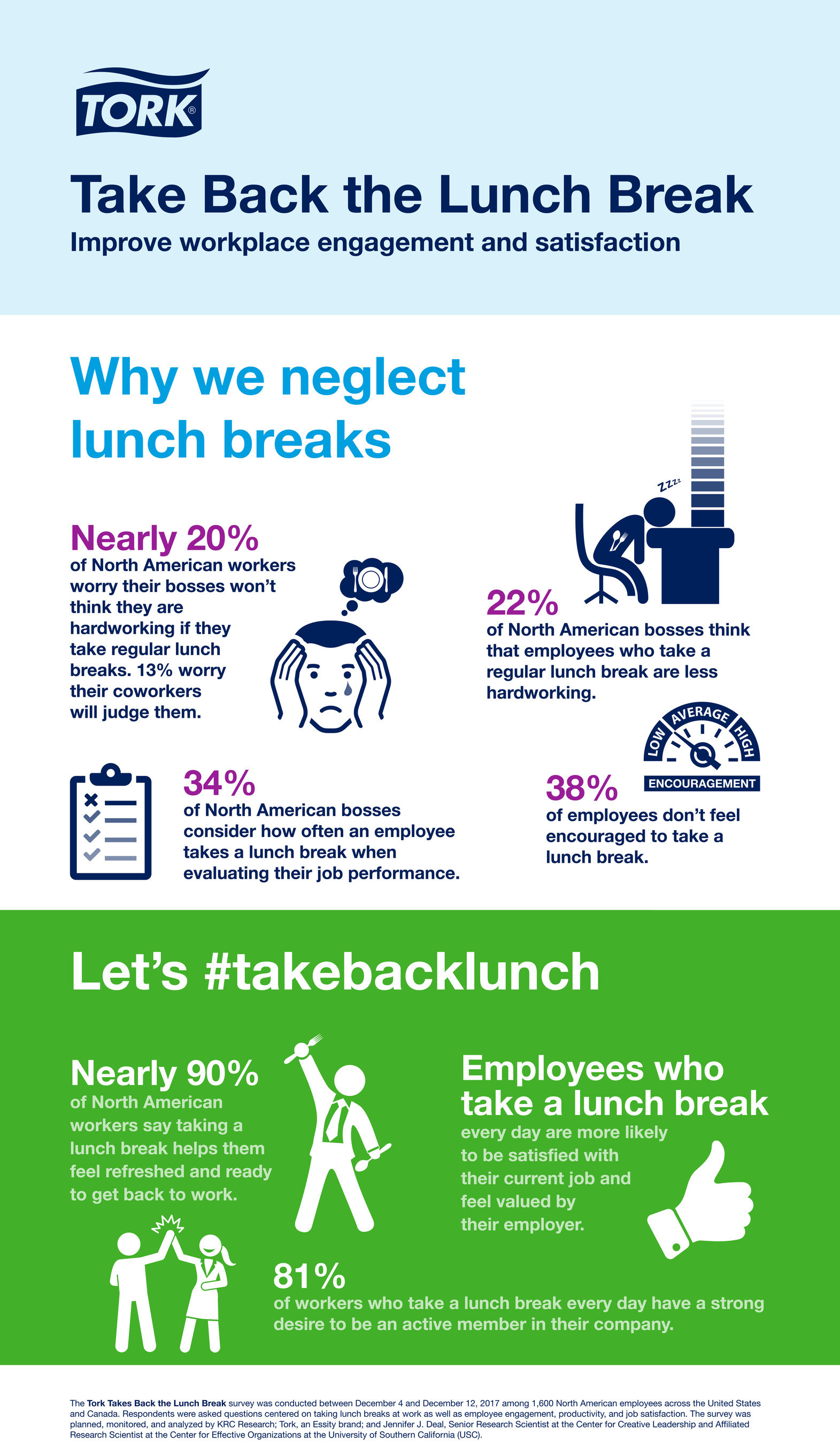
“As the global leader in professional hygiene products and services, the Tork brand is committed to improving workplaces around the world,” said Don Lewis, President of Professional Hygiene at Essity, whose Tork brand manufactures the napkins, toilet paper, hand towels and soap that are used in offices across North America each day. “Results from our research show the importance of taking a real lunch break – getting fresh air, exercising or picking up a lunch that will fuel you for the rest of the day. This simple act of taking a full lunch break can improve how employees feel about their work and their company. The study reveals something managers and companies can start doing tomorrow to make a positive impact on employee engagement.”
Restaurant managers can learn more about Tork’s Take Back the Lunch Break campaign, by visiting TorkUSA.com/takebacklunch.
Lavu’s New Platforms
Lavu introduced four solutions for eateries of all sizes alongside its updated corporate branding. Lavu is launching two distinct platforms. Lavu 4.0 is the latest update to Lavu’s feature-rich POS system and Lavu SE is an affordable entry level POS for the quick serve market. With the addition of Lavu To Go 2.0 and the brand new Self-Ordering Restaurant Kiosk, restaurateurs now have a full suite of solutions that make operating a restaurant simple and efficient, and create boundless new opportunities to grow revenue.
“We’re dedicated to addressing the challenges facing restaurants of all sizes and have created tailored solutions that drive new revenue growth by quickly making new employees productive and delivering omnichannel solutions that improve customer engagement and profitability,” said Ohad Jehassi, President of Lavu.
Lavu’s new POS solutions help restaurant operators:
- Streamline operations: Lavu 4.0 improves efficiency for servers and kitchen staff via a brand-new user interface and an easy-to-use control panel that streamlines day to day tasks and job functions. Enhanced functionality for front and back of house operations, an intuitive combo builder, dual cash drawers, and a hold/fire feature deliver extensive customization options for any type of restaurant or bar.
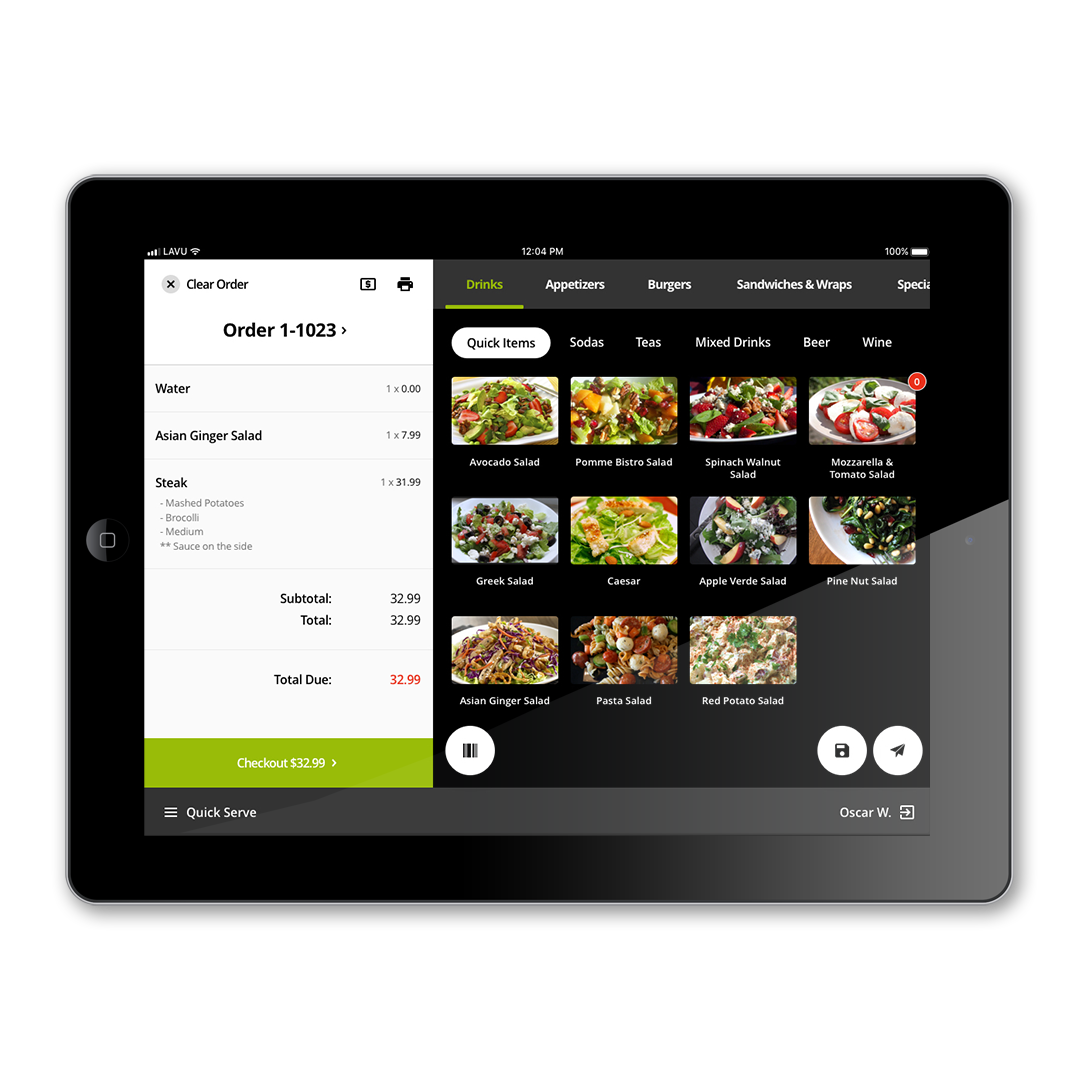
- Upgrade to an affordable, feature-rich system: At an attractive entry level price point, Lavu Special Edition (SE) eliminates the cost-related barrier to entry into POS solutions for individual restaurateurs who are still operating on manual cash registers. Fully compatible with iOS and Android, setup and training are simple and Lavu SE is scalable with monthly, no-contract options.
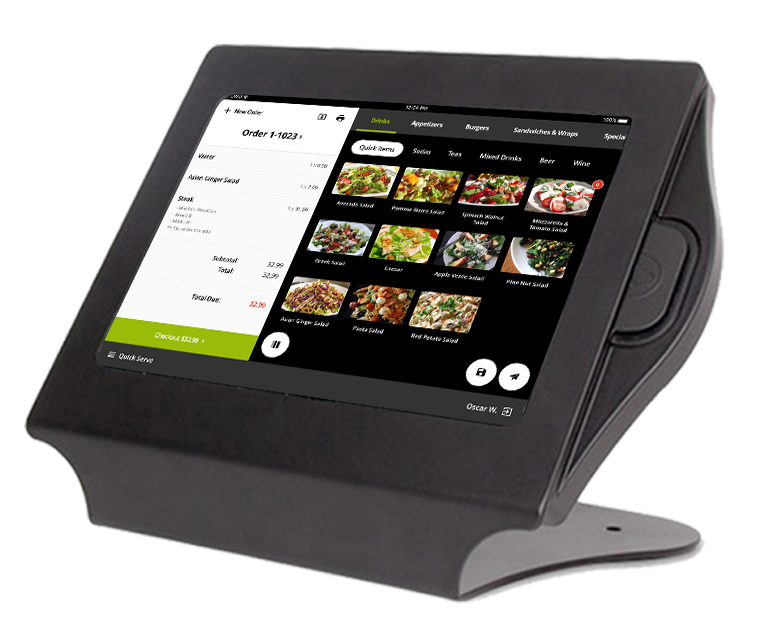
- Enhance the guest experience: Whether used as a standalone ordering solution or to complement counter staff, the new Self-Ordering Restaurant Kiosk, available on iOS or Android, gives guests the power to place their own orders by using a simple interface, cutting down on lines and increasing order capacity.
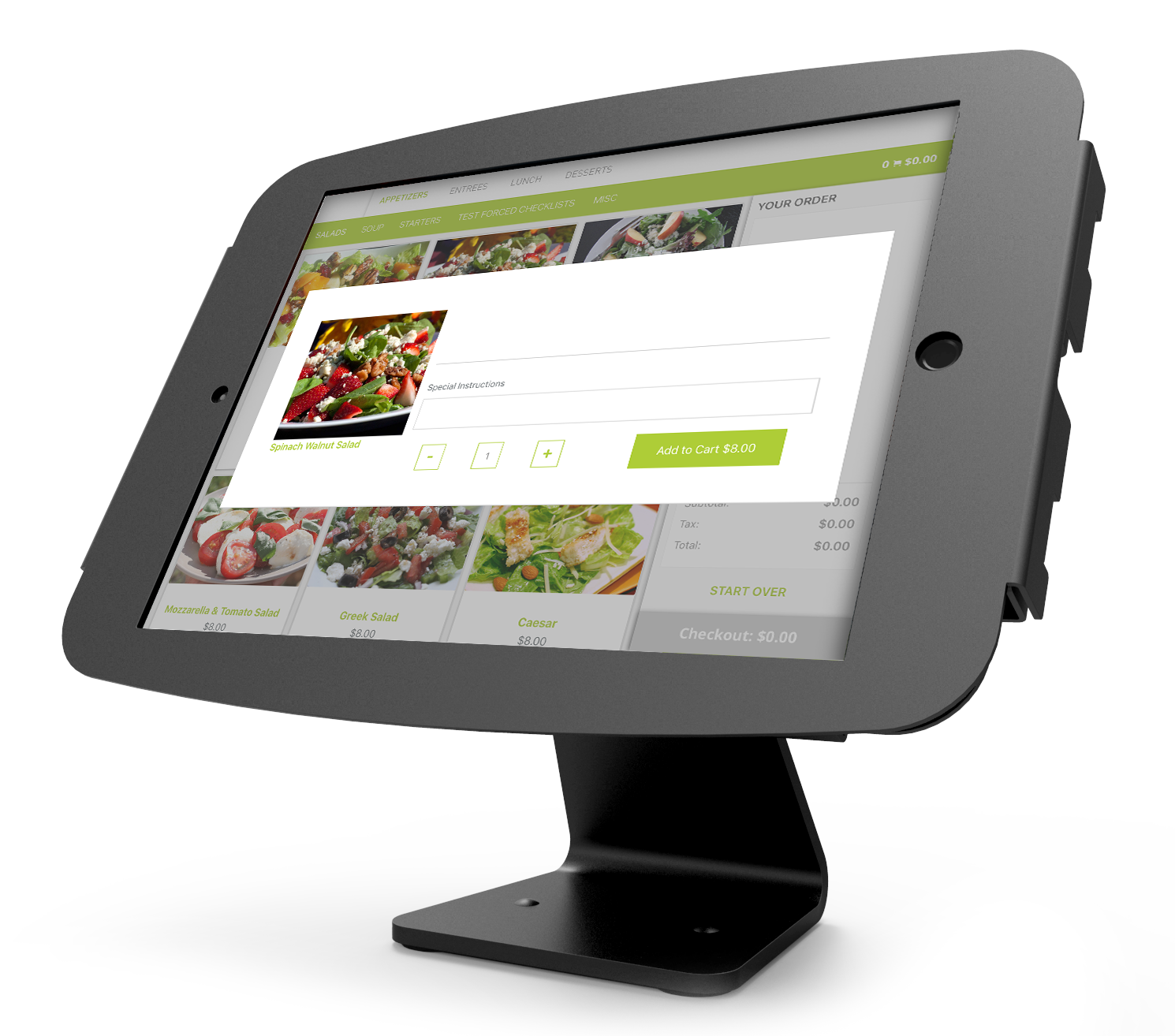
- Capture more orders: Lavu To Go 2.0 is a mobile responsive online ordering system. Customers can place orders for delivery, pick-up, or order ahead for dine in, and the back of house intake and delivery process is seamless.
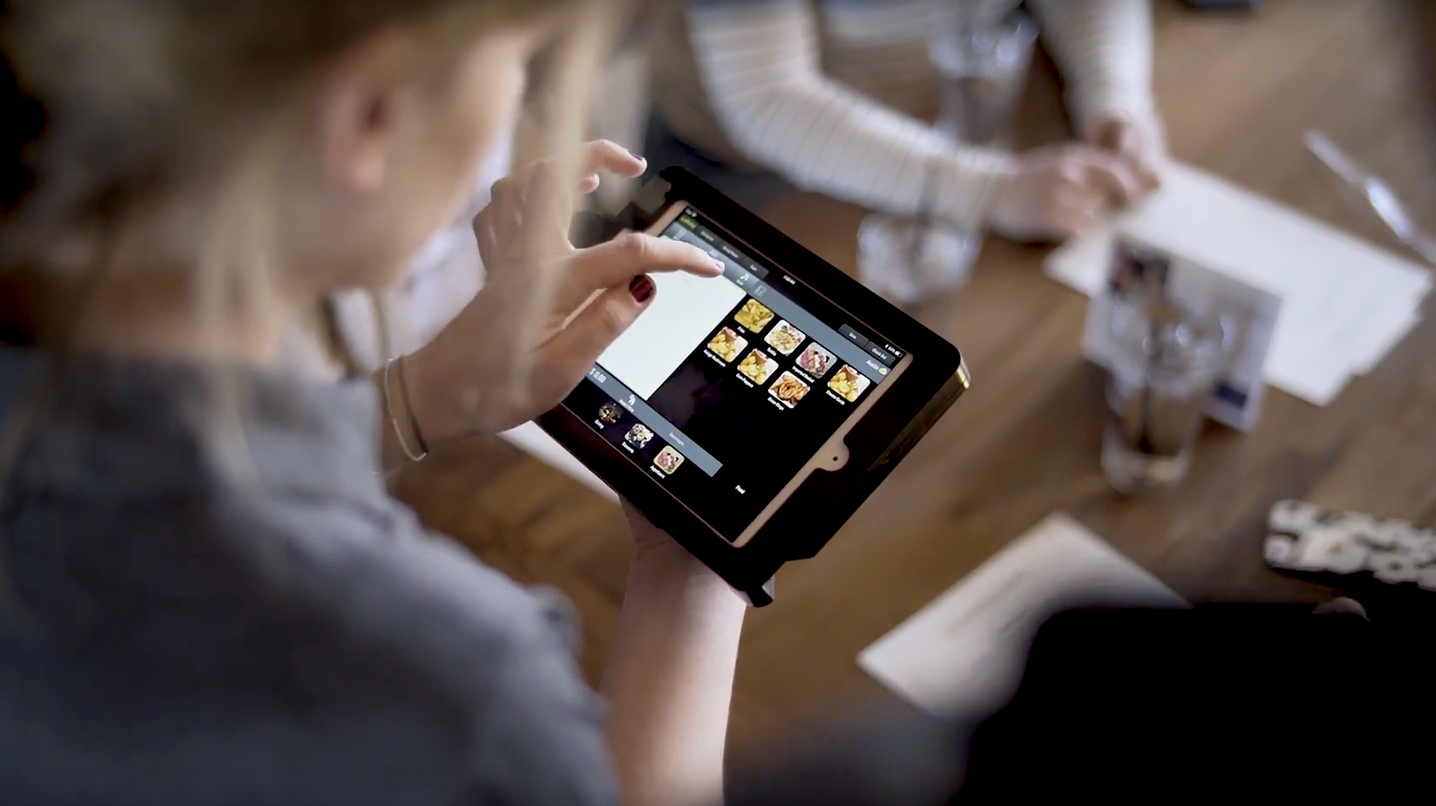
“From set up and training to implementing on a daily basis, I couldn’t ask for an easier system to use than Lavu,” said Madison Rumbaugh, Business Development Manager at Pinon Coffee. “With the information provided by Lavu’s system, we know our business and customers better, which translates into more opportunity and increased efficiency and profitability.”
To coincide with the new products, Lavu is also unveiling its new logo, website and overall rebrand. The new assets further reflect the company’s promise to ensure the needs, goals, and successes of the customer remain the driving force for how it designs, delivers and supports its solutions.
“Lavu was the very first POS system for iPad in the App Store. We’ve since grown and expanded our services exponentially and are celebrating with a rebrand that truly demonstrates who we are today – a business dedicated to our customers’ success, growth and efficiency,” continued Jehassi.
Project DASH’s Quick Success
Did you know the average restaurant has over 100,000 pounds of excess food annually – and only 1.4 percent of that is donated?
DoorDash’s company-wide Project DASH (DoorDash Acts for Sustainability and Hunger) initiative tackling the issues of hunger and food waste is on pace to donate six million meals to people facing hunger by the end of the year. Since launching the program four months ago, DoorDash has donated 1.8 million meals to hunger-related nonprofits with the help of its restaurant partners through both food recovery and “one-meal for one-meal” donation efforts. As part of the program, the company has also rescued more than 10,000 pounds of excess food, utilizing its logistics technology to deliver unused food from restaurants to local shelters and food banks.
Project DASH bolsters the company’s mission of delivering good with a three-fold approach: through its Food Recovery efforts helping restaurants donate excess food to local shelters and food banks; One for One Meal Donations, and WeDash for Good, a program where every DoorDash employee “dashes” monthly and funds earned are donated to local hunger relief organizations in the communities DoorDash serves. DASH has expanded beyond the initial pilot, with food rescue programs currently in place in cities including Atlanta, Chicago, Houston, Los Angeles, New York, San Jose and Washington D.C.
As part of its partnership with Feeding America, the nation’s largest hunger-relief organization, DoorDash Drive API technology is now integrated and is helping to power Feeding America’s MealConnect platform. DoorDash is the first Feeding America partner to utilize its drivers—Dashers—to deliver MealConnect retail food donations to the Feeding America network of food banks and their partner agencies. DoorDash provides valuable logistical expertise between partnering restaurants’ surplus food with local Feeding American distribution sites, which receive the donations.
“Delivering good is not just a tagline we use—it’s the sole purpose of Project DASH and is integrated into the very fiber of what DoorDash seeks to accomplish everyday,” said Tony Xu, co-founder and CEO of DoorDash. “We’re proud of our first-of-it’s-kind integration with Feeding America’s MealConnect, allowing more restaurants to deliver excess food than they could before by providing our logistics technology that helps to power the platform.”
Ziosk Tablet Targets Independents
Ziosk is making its pay at the table technology available to independent restaurants across the country with the Company’s new Ziosk Aurizon™ tablet. With 180,000 tablets currently deployed nationwide, Ziosk now offers operators with less than 20 locations a solution to help drive revenue and improve operational efficiency as it has with large chains including Olive Garden.
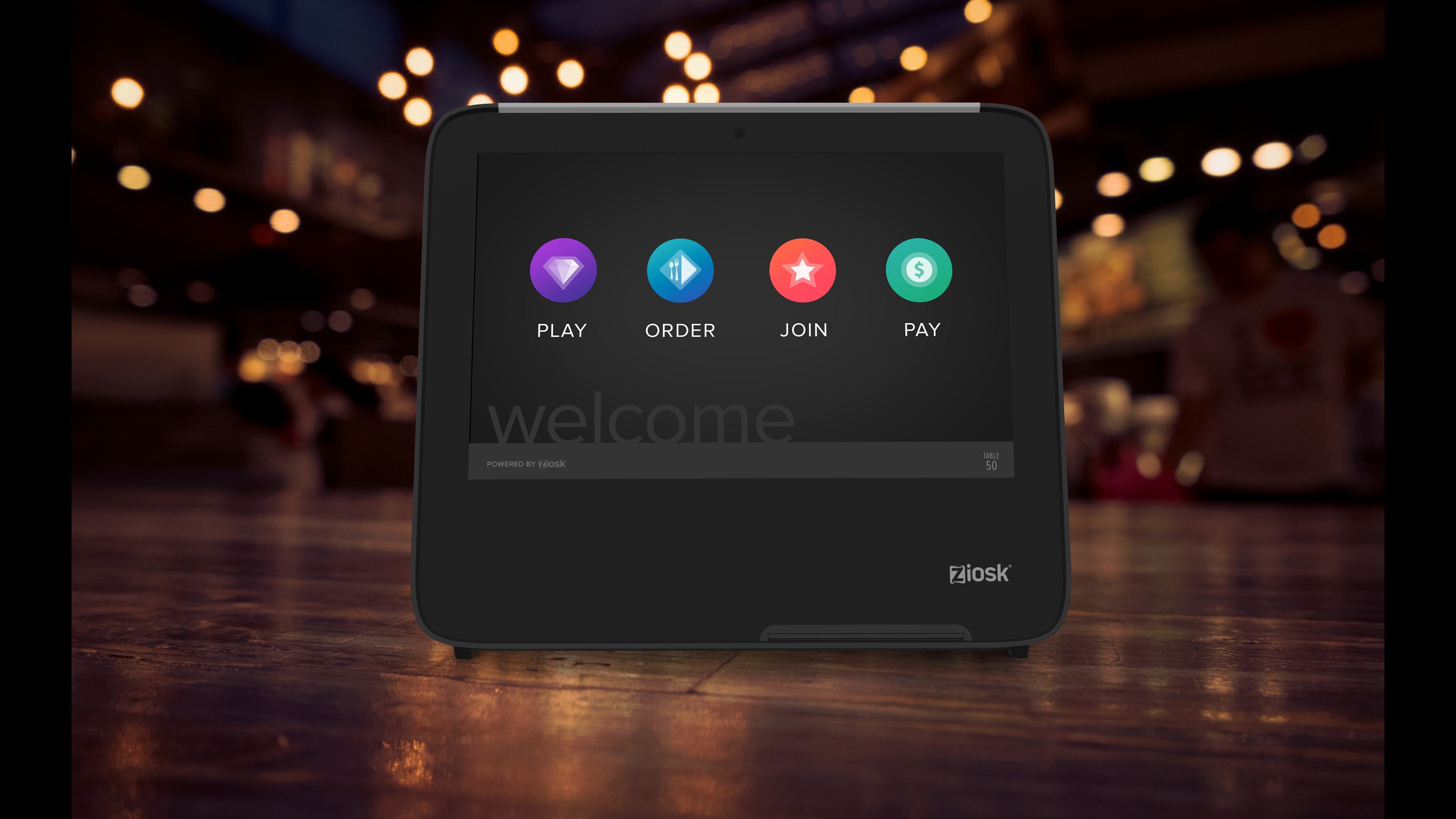
“There are an increasing number of dining options available to today’s sophisticated consumer. Running a successful restaurant in this crowded environment is more challenging than ever,” said Jack Baum, chairman and CEO of Ziosk and independent restauranteur. “The Ziosk alleviates these challenges for independent restaurants by providing secure and reliable payment at the table, while capturing actionable insights through guest survey data. These benefits help generate greater guest satisfaction, frequency, throughput, retention and revenues for all restauranteurs so they can be more successful in a competitive market.”
“Having worked previously with Ziosk at a large restaurant chain, I’ve seen the benefits of the technology firsthand and am glad to be able to bring it to Ted’s Café Escondido,” said Christopher Artinian, Managing Director, The Beekman Group. He was formerly President and CEO of Smokey Bones Bar & Fire Grill and Morton’s The Steakhouse, and is currently a board member of Ted’s Café Escondido. “Ziosk will help Ted’s Café, a high volume 11-unit Mexican concept, drive greater operational efficiencies in an increasingly saturated market through secure payment, e-club sign up and guest satisfaction survey tools.”
Ziosk’s tabletop technology enables restaurants to provide guests with greater control over their dining experience including easy ordering to help drive incremental sales from beverages, appetizers, and desserts, while ensuring a heightened level of payment security with encryption and chip card enablement. Opt-in entertainment will be available to guests to help create communal experiences at the table, while building new revenue stream for operators.
Additional benefits of the Ziosk platform include e-club enrollment to enable digital communication with loyal guests, improved table turn times by six to nine minutes and up to 400 percent return on investment. Additionally, Ziosk can help reduce EMV expenses by up to 85 percent, and enable mobile payments with built-in NFC capability. Other notable features include 50 times lift in guest survey responses, a tool restaurant operators can use to optimize all aspects of their brand.
First Certified Gluten-Free Food Truck
The Gluten Intolerance Group (GIG), the industry leader in the certification of gluten-free products and food services, has certified food truck Auntie M’s Gluten Free through its Gluten-Free Food Services (GFFS) Certification Program. As the first food truck to achieve GFFS certification, Auntie M’s serves Midwestern fair favorites like corn dogs, funnel cakes, funnel cake sandwiches, cheese curds and onion rings—all of which are now certified gluten-free. Owner Brian O’Konek, who has celiac disease, was inspired to start the food truck when visiting the Minnesota State Fair and realizing how few gluten-free options were available.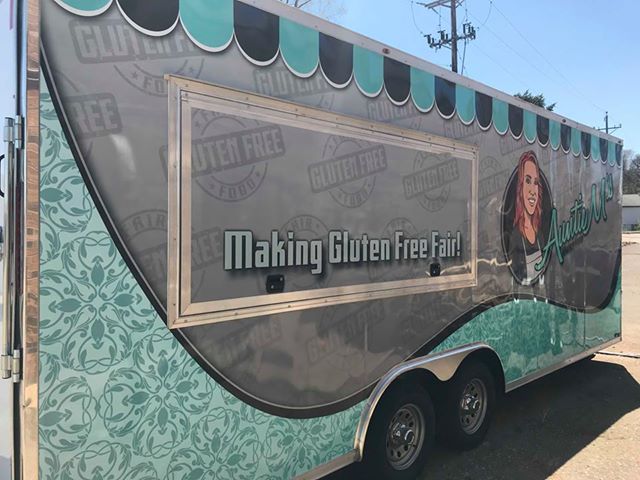
“Even though we were dedicated to serving gluten-free foods, we had customers who remained uncomfortable. That’s when we realized it was extremely important to go the extra step to be certified,” O’Konek said. “It is so great to see our customers able to eat the foods that they enjoy. It is a real delight to see gluten-free children eating these fun foods for the first time.”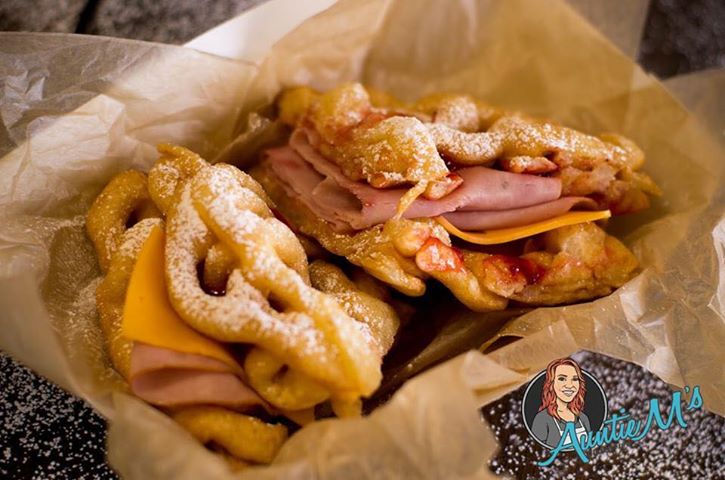
Consumer demand for gluten-free dining options continues to grow, from restaurants to college campus dining halls to home meal kits. Gluten-free consumers often fear dining out because they have no control over food preparation. GFFS certification provides consumers with the assurance that a food establishment understands the requirements related to gluten-free food preparation and have established procedures that will keep them safe.
JBF Humanitarian of the Year
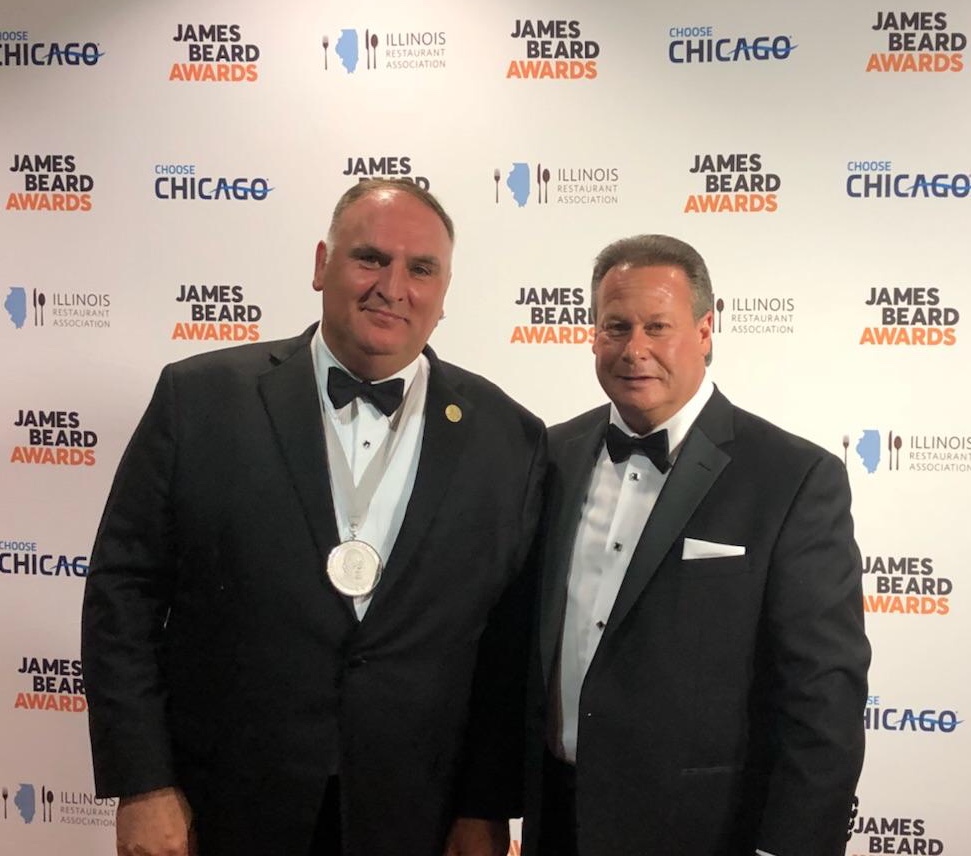
Sheldon Yellen, CEO of BELFOR Property Restoration, (right) presented the 2018 James Beard Foundation Humanitarian of the Year Award to José Andrés, renowned chef, owner of ThinkFoodGroup, humanitarian and founder of World Central Kitchen. Yellen said he was honored to present this prestigious award to Chef Andrés for his remarkable relief efforts in Puerto Rico and beyond. Following the devastation of Hurricane Maria in 2017, Chef Andrés served over 3.3 million meals and continues to demonstrate his commitment to Puerto Rico and its people through ongoing programs and long-term projects. The award was sponsored by HOODZ International, a BELFOR company.
APT 115 Opens
New neighborhood wine destination, APT 115 situated on the ground floor of 7East Urban Homes in East Austin, is now open. APT 115 offers a thoughtfully curated wine list highlighting a number of off-the-beaten path wines, from region to varietal.

Austinite, musician and hospitality veteran Joe Pannenbacker curates the wine list, which changes daily. He also designed the intimate space, which comfortably seats up to 20, to make guests feel as if they haven’t left home while trying wines that span the globe. He said the home-like space elicits the feeling of gathering at a friend’s place for a great night in; albeit one with great, yet eclectic taste, who knows their stuff when it comes to wine and vinyl for that matter.
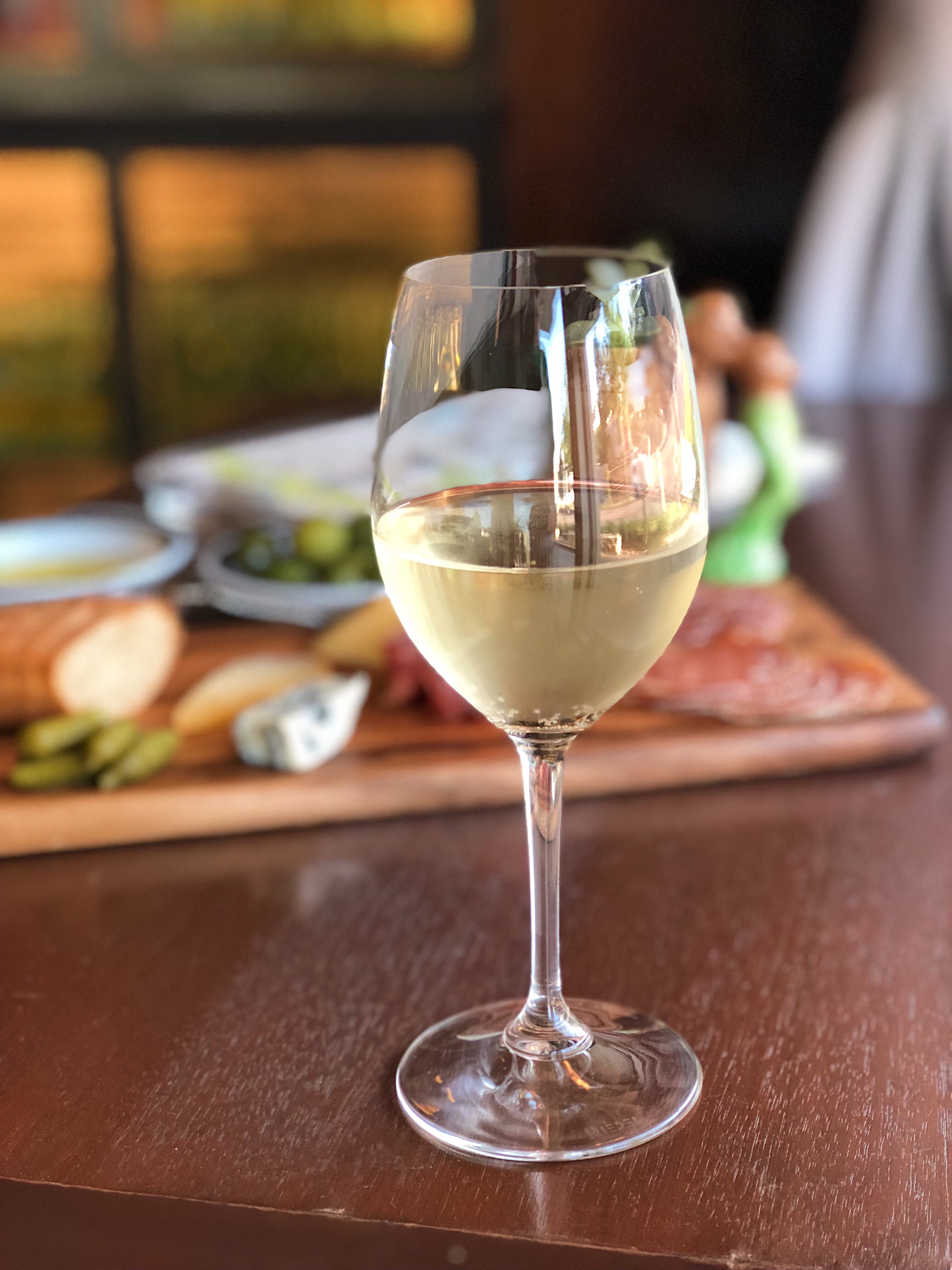
The aim is to give fine dining service in a laid-back atmosphere. While Joe himself isn’t a sommelier but to him that’s all a part of the plan. “Wine to me is like music. It’s meant to be fun,” said the owner and curator. “When Eddie Van Halen was asked who taught him, he said, ‘I didn’t go by the book, I wrote that book.’ And that’s exactly what I am trying to do here. Sometimes we work outside the rules but the aim is to always help guests enjoy wine without any intimidation factor, facilitate fun and let people enjoy the music, or in this case, the wine and the music.”
APT 115’s wine list has a strong focus on boutique North American wineries but also features a great selection of off-the-beaten-path wines from Tikves, a 2015 white varietal from Macedonia, Rkacieteli priced at $7/glass to the 2017 Southtold Farm + Cellar’s Call of The Brave, an excellent Sangiovese, Cab Franc from the Texas High Plains. Ranging from $7 to $400, the breadth of the list varies greatly, and guests can also find exceptional value in exciting and unique, sometimes funky, wines that you won’t find on many lists around town. With a retro vibe (the wine list stored in an 1970’s trapper keeper), an exclusive wine menu that changes daily, and light bites, APT 115 has during its soft launch quickly amassed a group of regulars who flock to the space for the daily wine by the glass offerings, as well as a thoughtfully beer program which features rotating beers on tap that are both local and from around the world, local craft beer in cans, large formats and ciders. Wines by the glass are available from $7 with beers beginning at $3.
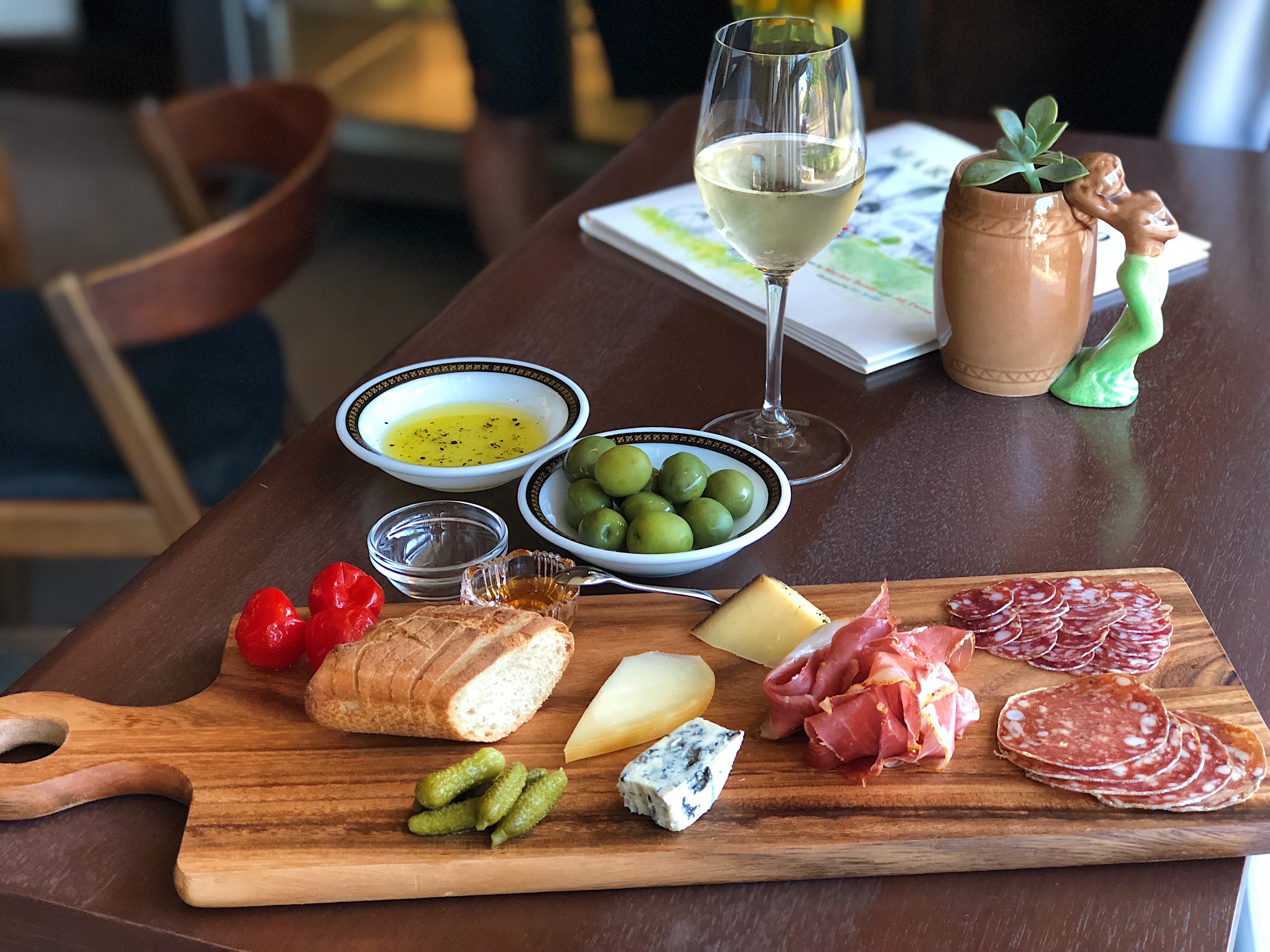
Born and raised in Austin, Pannenbacker has concurrently always had a true passion for music. A musician himself, having toured with artists such as Black Joe Lewis and playing in a number of Austin bands including Think No Think, and at APT 115 guests he plays vinyls from his personal collection.
“My taste in music is similar to my taste in wine, all over the place. We love to play Supertramp and Fleetwood Mac, but you never know what you are going to get, sometimes Slayer, sometimes John Coltrane, sometimes Jay Z,” said Pannenbacker. He continued “every detail is thought out, from the wines by the glass that evening, to what records we play, to the vintage furniture, how our meats and cheeses play out, and the art on the walls. Sometimes it’s an accident, sometimes it’s on purpose, hopefully it always it creates a good time.”
One-of-a-Kind Epicurean Experience
River Terrace Inn is partnering with Kitchen Collective to allow hotel guests to experience interactive cooking, luxury dining and Kitchen Collective’s private lounge. Members have the unique opportunity to expand their culinary abilities and techniques in a state-of-the-art professional kitchen alongside culinary experts in a space designed to bring people together in celebration of an elevated epicurean experience. The Kitchen Collective offers several menus, including a three-course menu, four-course menu and five-course menu. Interactive cooking experiences and standard dining experiences start at $75 per person. The first of its kind in the country, Kitchen Collective allows members to use the fully-stocked state-of-the-art kitchen; receive coaching from a professional chef; host dinner parties; dine; and relax in the private lounge, dining room and courtyard.
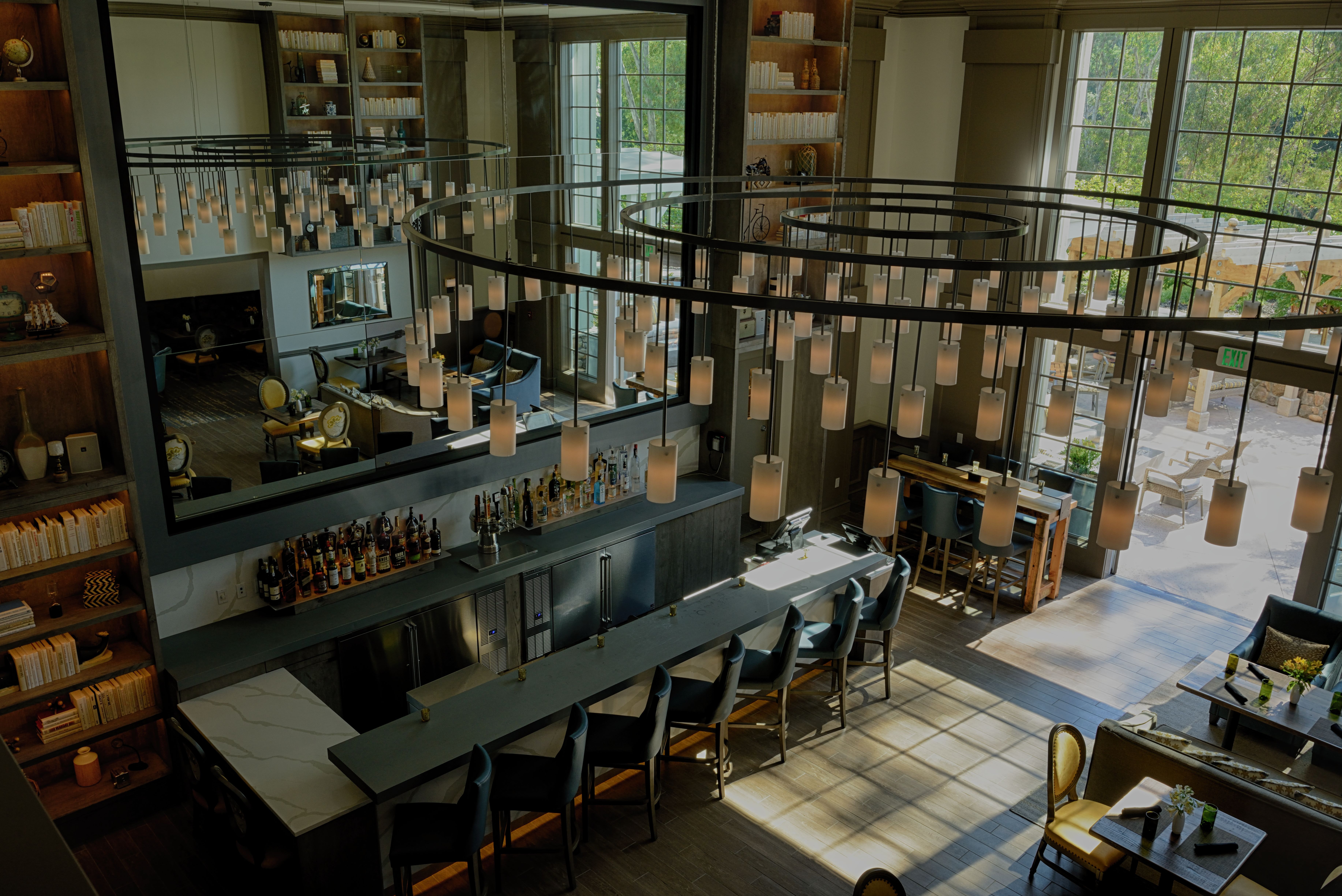
Guests of River Terrace Inn will now receive exclusive access to the Kitchen Collective’s private lounge; standard dining; access to interactive cooking experiences and cooking classes; 20 percent off all Kitchen Collective membership initiation fees; 20 percent off private event venue fees; access to members-only ticketed events; and free admission for three additional guests.
“We are so excited to partner with Kitchen Collective to provide this one-of-a-kind epicurean experience for our guests,” said Christine McDermott, general manager of River Terrace Inn. “As a premier destination for world-class food and wine, this new offering will enhance our guests’ experience in Napa Valley.”
Duck Donuts Uses ParTech
Duck Donuts has selected PAR’s Cloud-Based Brink POS® Software and EverServ® 8115 terminals for all of its nearly 200 current locations and future stores, as well. Duck Donuts, one of the fastest growing donut franchises in the United States, specializes in Warm, Delicious and Made-to-Order!® donuts.
Duck Donuts was seeking a new solution with an open API interface that would allow the Company to seamlessly launch online ordering and integrate an upcoming loyalty program for its customers. Duck Donuts’ focus was to find a cost-effective solution to improve overall service for its franchisees, including an easier way to manage enterprise level reporting.
“After speaking with other businesses using Brink, we felt comfort and reassurance that Brink was the right choice for Duck Donuts,” said Gary McAneney, President, Duck Donuts Franchising Company. “Being a franchise business, our first priority is to support our franchisees and provide them with easy to use, cost effective tools that will help them run their business effectively. We are confident Brink will provide the POS support we need as we work towards our current and future goals for the business.”
“We are pleased to have Duck Donuts join the Brink family,” said Paul Rubin, Chief Strategy Officer, ParTech, Inc. “Aside from being a fast-growing quick service restaurant, Duck Donuts is also an organization that aligns with our values of being a conscious company. Duck Donuts is very active in their communities and is always finding ways to give back to those in need. Working with a company that is not only making a difference in the QSR space through its unique concept of made-to-order donuts, but also a difference in their communities is something we are very proud to be aligned with.”
Nation’s First 100 Percent Renewable Biogas-Powered Coffee Roastery
Vermont Coffee Company is the first U.S. coffee roaster to use 100 percent renewable biogas to roast its coffee. Both thermal and electric energy are sourced from renewable methane.
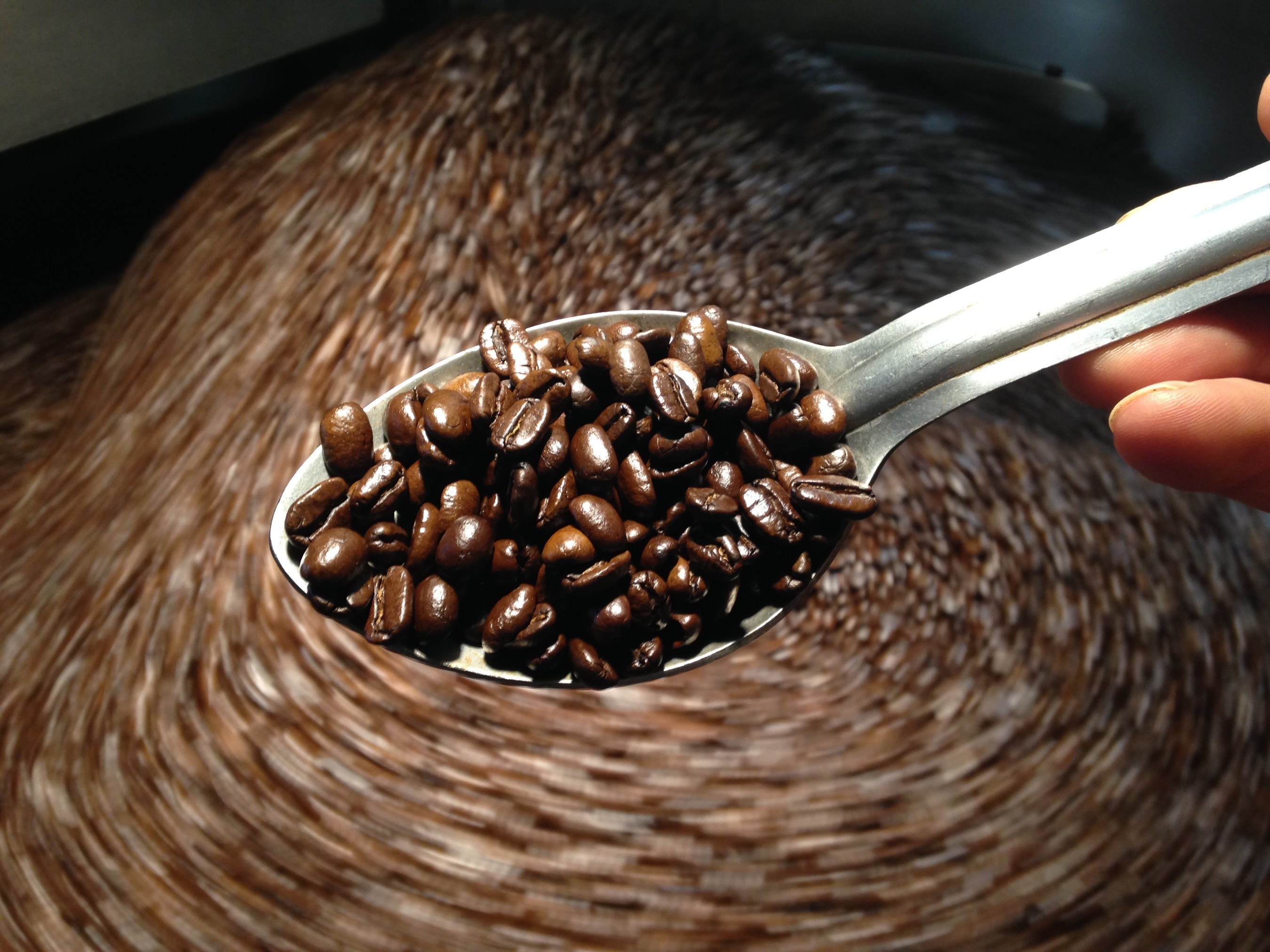
Vermont Coffee Company has been trying to get to this place—roasting coffee with 100 percent renewable energy—for a very long time. “Renewable electricity was the easy part,” said company founder and CEO, Paul Ralston. “The real challenge was getting a renewable thermal energy source to replace propane.” Methane is the input for both forms of renewable energy. Anaerobic digesters operated by Addison County dairy farms extract valuable methane gas from cow manure and convert it into electricity. Known as Cow Power, this renewable energy source is delivered by Green Mountain Power. The source for the company’s renewable biogas is methane recovered from a Quebec-based engineered landfill operated by EBI Énergie Inc. and delivered by Vermont Gas Company.
Before making the conversion to 100 percent renewables, Vermont Coffee Company implemented a multi-year investment to make its roastery more energy efficient. “It’s hard to believe,” said Ralston, “but we reduced the amount of fuel used to roast a pound of coffee by more than 70 percent, and electric consumption per pound has also been reduced dramatically.” Energy efficiencies have come from adopting new roasting technology and modifying roasting processes.
“The capital investment to upgrade our roasters was significant,” said Ralston, “but our first responsibility is efficiency, and increased efficiency makes the higher cost of renewable energy less of an issue. Renewable bio-energy costs more to produce, and we voluntarily pay a premium price to our suppliers for the renewables we consume. It’s important that we invest in better technology so we’re not passing our higher utility costs on to our customers.”
Moving to renewable energy is very much in line with the company’s philosophy. “Our mission is ‘Coffee Roasted for Friends,'” said Ralston, “and our customers care that our coffee is 100 percent certified organic. We believe they’ll be excited that our energy now comes from 100 percent renewable sources.”
EAT Club Acquires Farm Hill
EAT Club acquired the personal meal business of Bay Area-based Farm Hill. The acquisition will enable EAT Club to extend the reach of its virtual cafeteria service to a new customer base, increase employee fresh meal options, and accelerate overall company growth. Terms of the deal were not disclosed.
“Farm Hill’s extensive customer base, combined with its impressive offering made it the perfect choice as an acquisition target for EAT Club. Together, we will expand the EAT Club service to a larger customer footprint and solidify our leading position in the market,” said Rodrigo Santibanez, founder and COO of EAT Club.
“Farm Hill has always had a mission of bringing the best quality food to the right people at the right time,” said Farm Hill CEO and former Head of Innovation at GrubHub, Collin Wallace. “I believe in this vision as a friend of the founders, as an investor, and now as an executive. Combining with EAT Club will allow this vision to continue to grow.”
The company also announced the appointment of longtime internet executive, Doug Leeds, as CEO. Formerly the CEO of IAC Publishing, leading storied brands Dictionary.com, Ask.com, Urbanspoon, and The Daily Beast, Leeds brings decades of hands-on leadership and internet expertise to EAT Club. Leeds also has extensive M&A experience, driving prior acquisitions of Dictionary.com, About.com, Investopedia, and more by IAC Publishing. He joins EAT Club from August Capital, where he served as an executive in residence and advised August Capital’s portfolio companies. Previous experience includes executive positions with Yahoo!, Overture, Vodafone, and others.
“Having worked closely with Doug at August Capital, it was clear that he was the right person to take EAT Club to the next stage – from a growth-phase startup with availability in select cities to becoming the leading corporate food delivery service in major metro areas,” continued Santibanez. “Doug has proven his ability to scale companies at this stage in their lifecycles, with specific expertise in driving demand for internet services, M&A, and new monetization strategies.”
“EAT Club takes a completely unique approach from the rest of the market in feeding today’s workplace by providing personal choice to hungry employees,” said Doug Leeds, CEO of EAT Club. “I understand firsthand just how valuable high-quality individual meals are to employee productivity, retention, collaboration, and overall company culture, having been a satisfied EAT Club customer while running IAC Publishing.”
EAT Club has delivered more than 10 million meals to employees in San Francisco, Silicon Valley, and Los Angeles since launch. Member companies have the option to choose between a fully subsidized or a lunch money program, where employees can use money toward their lunches on a daily or weekly cadence.

